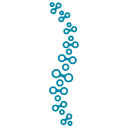What is a Herniated Disc?
A herniated disc, also known as a slipped disc or a disc protrusion, occurs when the inner core of a spinal disc ruptures through the tough outer layer of cartilage. The spinal discs act as cushioning pads between the vertebrae, helping to absorb shock and provide flexibility to the spine during movement. When a disc in the lower back becomes herniated, it can exert pressure on nearby nerves, leading to radiating pain, numbness and tingling, burning pain, and/or weakness in one or both legs and feet. When a disc in the neck becomes herniated, it puts pressure on the nerves that go to the shoulders and arms and it causes pain, numbness and tingling, burning, and weakness in one or both arms and hands.
Causes of Herniated Disc Injuries
There are several common causes of herniated disc injuries. These include:
- Age-related wear and tear: As we age, the discs in our spine naturally degenerate, becoming less flexible and more prone to injuries like disc herniation.
- Repetitive movements: Engaging in activities that involve repetitive bending, twisting, or lifting, such as manual labor, yardwork, sports or lifting children, can increase the risk of disc herniation.
- Improper lifting techniques: Lifting heavy objects without using proper form can put excessive stress on the spine, leading to disc injuries.
- Obesity: Carrying excess weight can strain the spine, increasing the likelihood of herniated discs.
Symptoms of a Herniated Disc
The symptoms of a herniated disc can vary depending on the location and severity of the injury. Common symptoms include:
Pain: The most notable symptom is often sharp or shooting pain that radiates down the arms or legs, depending on the location of the herniation.
Numbness and tingling: Herniated discs can cause numbness, tingling, or a pins-and-needles sensation in the affected area.
Muscle weakness: Weakened muscles in the arms or legs may result from nerve compression caused by a herniated disc.
Limited range of motion: Some individuals may experience stiffness or reduced flexibility due to pain or nerve irritation.
Chiropractic Care for Herniated Discs
Chiropractic care is a conservative, non-invasive treatment approach that focuses on restoring the alignment and function of the spine. Chiropractors are trained to identify the root cause of a herniated disc injury and develop personalized treatment plans.
Here’s how chiropractic therapy can assist in the recovery process:
Spinal adjustments: Chiropractors use specific manual adjustments to realign the spine, reducing pressure on the herniated disc and restoring proper nerve function. Light force techniques can be used if the pain is too severe for traditional manual style adjustments.
Spinal decompression: This technique gently stretches and releases the spine, creating negative pressure around the disc. The negative pressure acts like a vacuum and promotes the retraction of the herniated disc off of the nerve, which can relieve pain and promote healing.
Therapeutic exercises: Chiropractors may prescribe targeted exercises to strengthen the surrounding muscles and improve overall spinal health, promoting long-term recovery and prevention. Exercises are oftentimes not started until the pain is more under control, so as to avoid further irritation.
Lifestyle modifications: Chiropractors provide guidance on posture correction, ergonomics, and other lifestyle modifications to reduce stress and strain on the spine, preventing further disc injuries.
Frequently Asked Questions
Can chiropractic therapy cure a herniated disc?
While chiropractic therapy cannot reverse the structural changes in a herniated disc, it can significantly alleviate pain and improve function, allowing natural healing to occur.
Is chiropractic therapy painful?
Chiropractic adjustments are typically gentle and should not cause pain. Some individuals may experience mild soreness or discomfort following an adjustment, which is temporary.
How long does it take to recover from a herniated disc injury with chiropractic therapy?
The recovery time varies depending on the severity of the injury and individual factors. Chiropractic therapy can expedite the healing process, but it may take several weeks or months to achieve optimal results. Disc injuries often take between 3 and 6 months or more to fully heal.
Can I see a chiropractor without a referral from my primary care physician?
Yes, chiropractors are primary healthcare providers, and most insurance plans do not require a referral to seek chiropractic care.
Are there any risks associated with chiropractic therapy for herniated discs?
Chiropractic adjustments are generally safe; however, like any treatment, there are potential risks. These risks are minimal but may include soreness, muscle stiffness, or temporary aggravation of symptoms. Light force techniques can be used to reduce the possible side effects.
Can chiropractic prevent future herniated disc injuries?
Chiropractic care focuses on improving spinal health, strengthening muscles, and promoting proper posture, which can reduce the risk of future herniated discs when combined with proper body mechanics and self-care.
Herniated disc injuries can be debilitating, causing pain and discomfort in daily life. Chiropractic care offers a non-surgical, drug-free approach to alleviate pain, restore function, and promote healing. If you suspect a herniated disc or are suffering from related symptoms, consider seeking the guidance of a professional chiropractor, who can create a personalized treatment plan tailored to your needs. Take care of your spine, and remember that early intervention can lead to faster recovery and a healthier, pain-free life.



